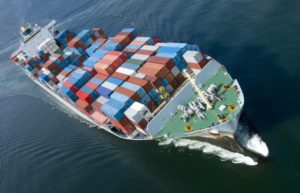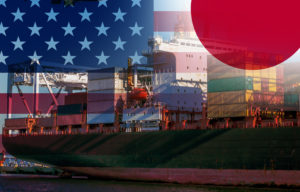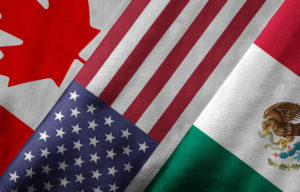News & Insights
Companies May Begin Submitting Their Product Exclusion Requests for List 3 Goods on June 30th
Today, the USTR published a Notice in the Federal Register outlining the deadlines and procedures for requesting exclusions for specific products from the tariffs imposed upon certain Chinese-origin products imported into the United States (i.e., the List 3 goods) under Section 301 of the Trade Act of 1974. See 84 Fed. Reg. 29576 (June 24, 2019).
By way of background, a U.S. Trade Representative (USTR) investigation found that China has made a practice of requiring U.S. companies to transfer their intellectual property rights and technologies to Chinese companies in order to obtain business licenses and approvals to invest in China. In response, the Trump Administration imposed 25% tariffs under Section 301 of the Trade Act of 1974 in July 2018 on certain goods imported from China valued at $34 billion and classified in 818 separate HTSUS classifications (i.e., List 1 Goods). Subsequently, on August 23, 2018, the United States imposed a 25% tariff on a second group of Chinese-origin products that were valued at $16 billion and classified in 284 separate HTSUS classifications (i.e., List 2 Goods). Thereafter, in September 2018, the United States imposed a 10% tariff on a third group of Chinese origin products valued at $200 billion covering over 6,000 HTSUS classifications (i.e., List 3 Goods). The 10% tariffs on the List 3 goods were raised to 25% on May 10, 2019.
Today’s Federal Register notice outlines the deadlines and procedures for interested U.S. parties to submit requests for exclusions from the List 3 tariffs. The key take-away’s of today’s Notice are as follows:
- The USTR will open the web portal for submitting exclusion requests on June 30th at Noon EDT (http://exclusions.USTR.gov). Exclusion requests may be submitted via the electronic portal at that time. The Docket Number is USTR-2019-0005.
- The deadline for submitting exclusion requests is September 30, 2019.
- A separate request must be submitted for each individual product.
- Instructions for submitting exclusion requests are as follows:
- Requesters must first register in the online portal at http://exclusions.USTR.gov.
- Requesters must complete all fields marked with an asterisk (*).
- Fields with a gray (BCI) notation are for Business Confidential Information (such information will not be made publicly available). Fields with a green (Public) notation will be made publicly available.
- Information required in the request:
- Complete contact information for the Requester.
- Whether the Requester’s business satisfies the Small Business Administration’s size standard for a small business.
- The 10-digit subheading of the Harmonized Tariff Schedule classification applicable to the product.
- The product name and a detailed description of the product including dimensions, weight, material composition, etc.
- The product’s function, application, principal use and any unique physical features that distinguish it from other products within the covered tariff classification—Requesters may (if they so desire) include copies of CBP rulings, photos, specification sheets, and previous import documentation.
- The Requester’s relationship to the product (i.e., Importer, U.S. Producer, Purchaser, Industry Association, Other).
- Specific data on the annual quantity and value of the Chinese-origin product, domestic product and third-country product that the Requester purchased in 2017, 2018 and Q1 2019.
- The requesting company’s gross revenues for 2018, Q1 2018 and Q1 2019.
- For imports sold as final products, the percentage of the Requester’s gross sales in 2018 that sales of the Chinese-origin product accounted for.
- For imports used in the production of final products, the percentage of the total cost of producing the final product(s) the Chinese-origin input accounts for and the percentage of the total gross sales in 2018 that sales of the final product(s) accounted for.
- Whether the product is available only from China.
- Whether the particular product and/or a comparable product is available from sources in the United States and/or in third countries.
- Statement as to whether the product is not available outside of China or if the Requester is not sure of the product’s availability.
- Whether the Requester has attempted to source the product from the United States or third countries.
- Whether the imposition of additional duties on the product has or will cause severe economic harm to the Requester or other U.S. interests.
- Whether the product is strategically important or related to “Made in China 2025” or other Chinese industrial programs.
- The Requester may also provide the value of its imports applicable to previous tariff actions (i.e., List 1 and List 2 goods subject to the Section 301 tariffs).
- Responses to Submitted Requests: After a request has been posted on UTSR’s online portal, other persons will have 14 days to respond to the request indicating their support or opposition to the request. Responses must also be submitted via the electronic portal.
- Replies to Responses: After a response has been posted on USTR’s online portal, the original Requester will have 7 days in which to reply to the response after the close of the 14-day response period. Replies to responses must also be submitted via the electronic portal.
U.S. companies impacted by the List 3 tariffs should move quickly to submit exclusion requests to the USTR for their products. Keep in mind that such requests must be submitted on or before September 30, 2019. The USTR will evaluate each request on a case-by-case basis taking into account the reason for the exclusion, whether the exclusion would undermine the objective of the Section 301 investigation, and whether the request defines the product with sufficient precision. If an exclusion request is granted, it will be effective for a period of one (1) year after the publication of the exclusion determination in the Federal Register, and will apply retroactively to entries of the subject goods made on or after September 24, 2018.
If you have any questions pertaining to the Section 301 tariffs or other international trade issues, please contact Melissa Proctor (melissa@millerproctorlaw.com) at Miller Proctor Law PLLC (https:www.millerproctorlaw.com).
News & Insights

Amendments to the Federal Maritime Commission Regulations Governing Non-Vessel Common Carrier Negotiated Rate Arrangements and Negotiated Service Arrangements Are Now in Effect
As of August 22, 2018, per the final rule in FMC Docket 17-10, the Federal Maritime Commission (“FMC”) will now allow Negotiated Rate Arrangements (“NRAs”) to be amended at any time, to be accepted by booking a shipment and to

U.S. and Japan Announce Early Trade Agreement Commitments
On September 25th, President Trump and Japanese Prime Minister Shinzō Abe announced that the United States and Japan have, as a result of early negotiations of a free trade agreement, reached consensus in the areas of market access for certain


